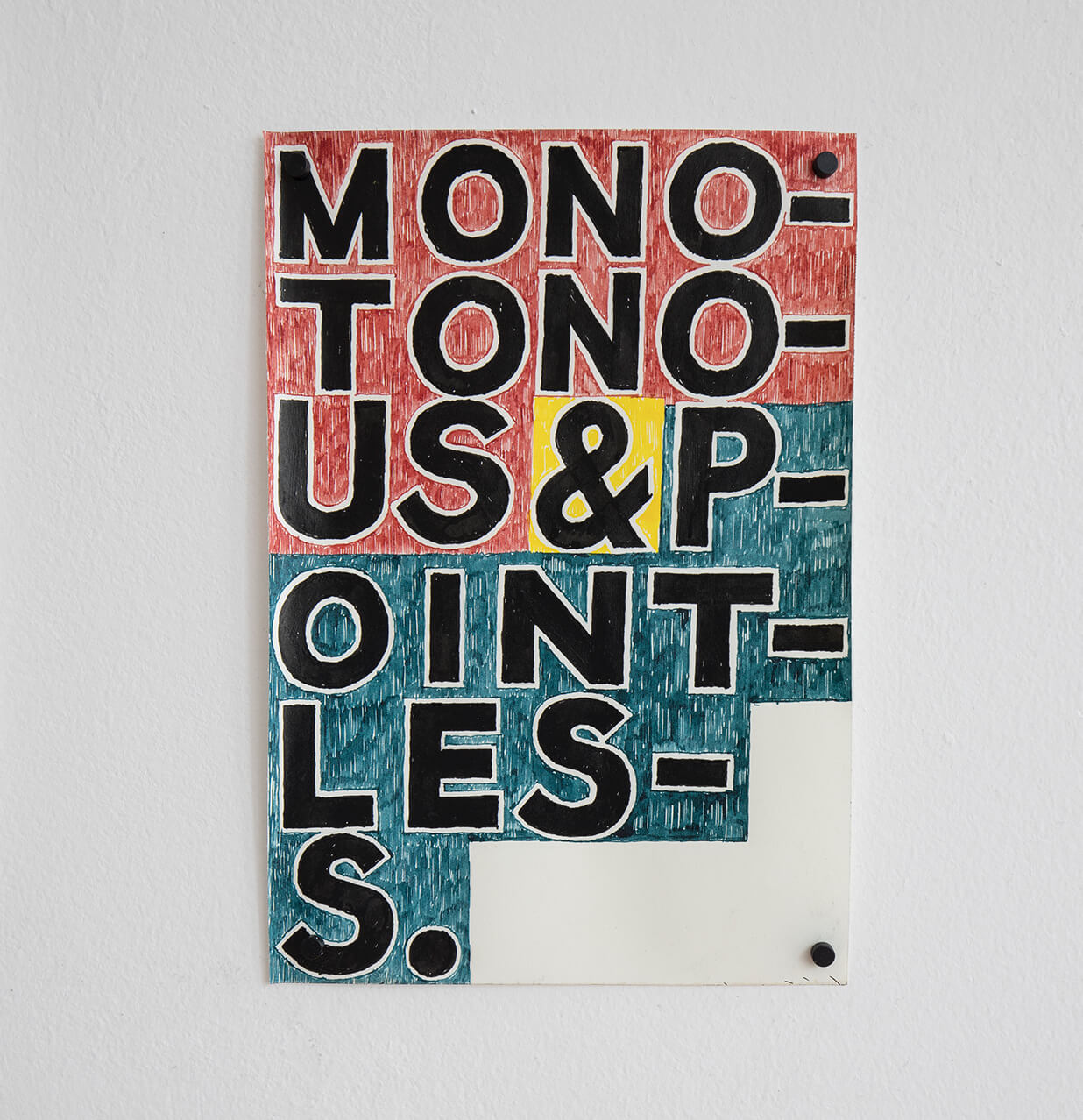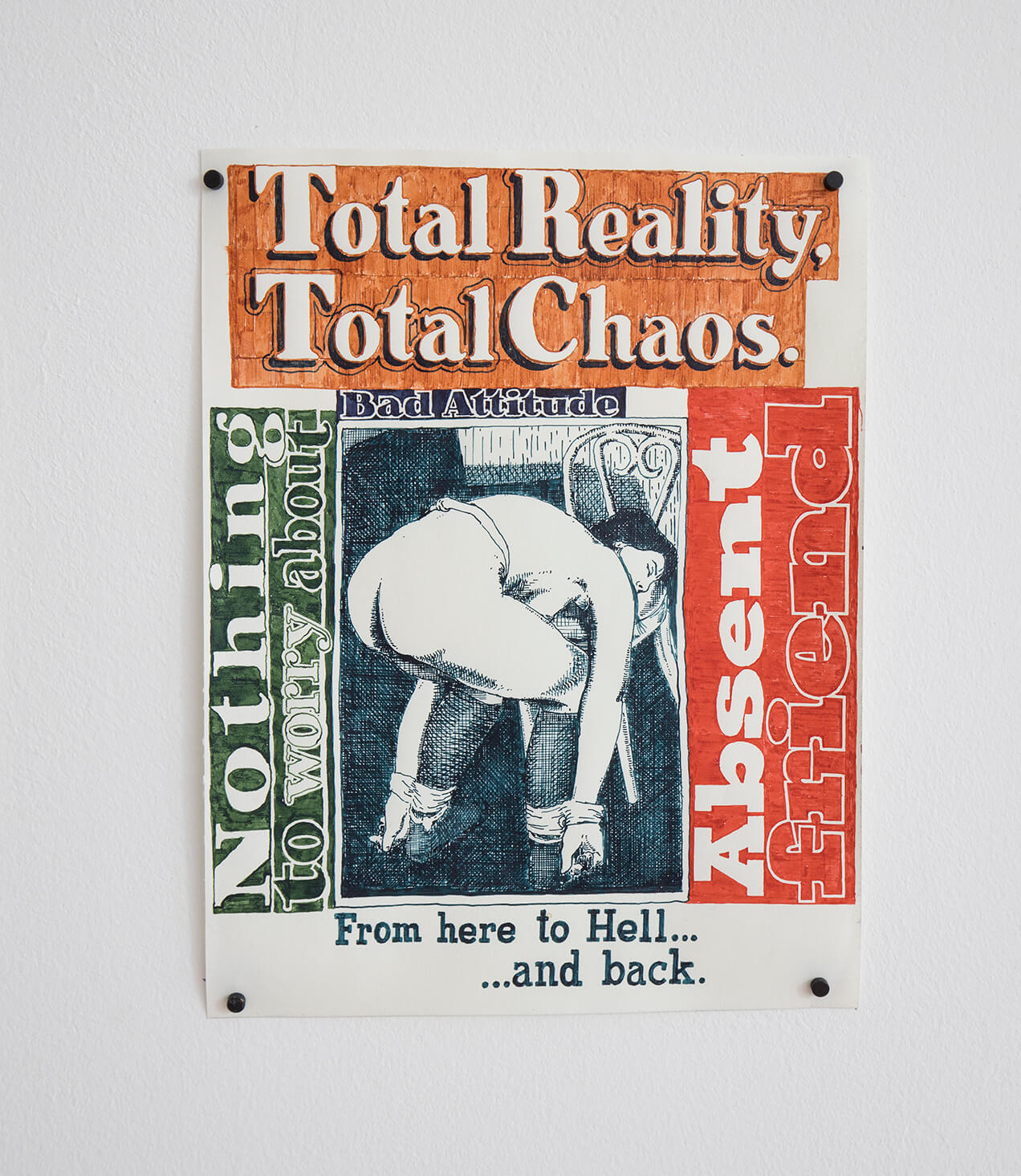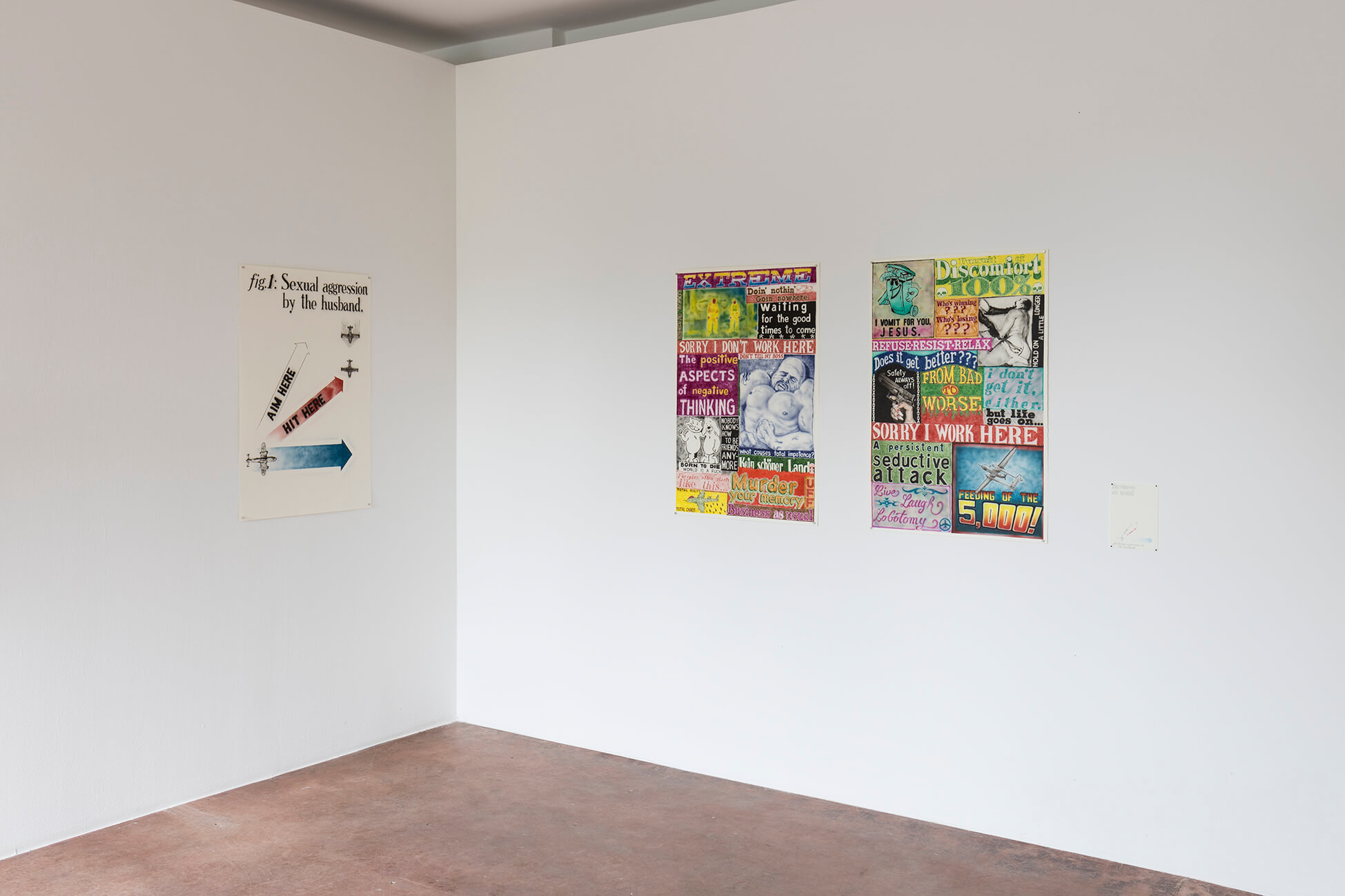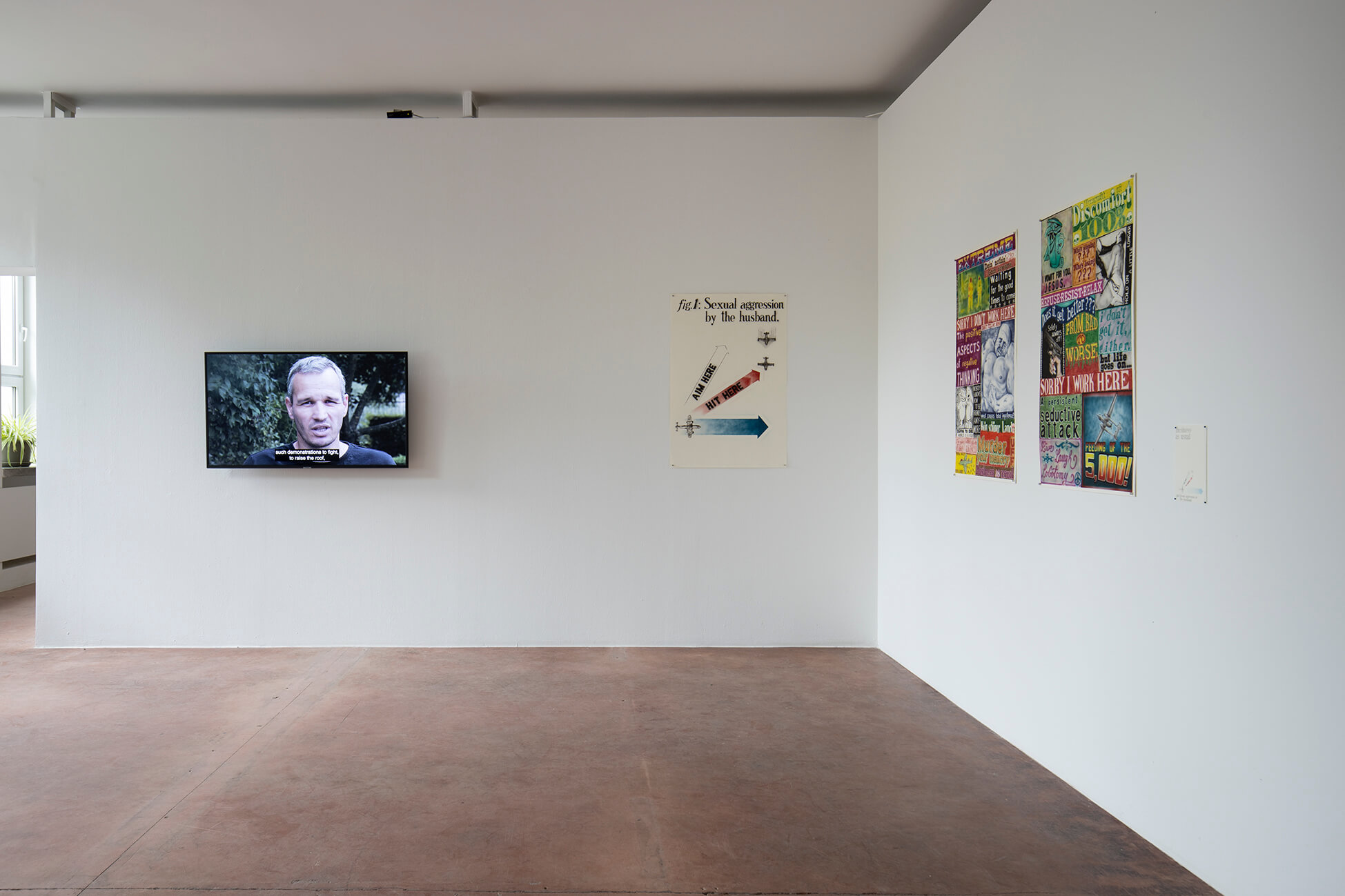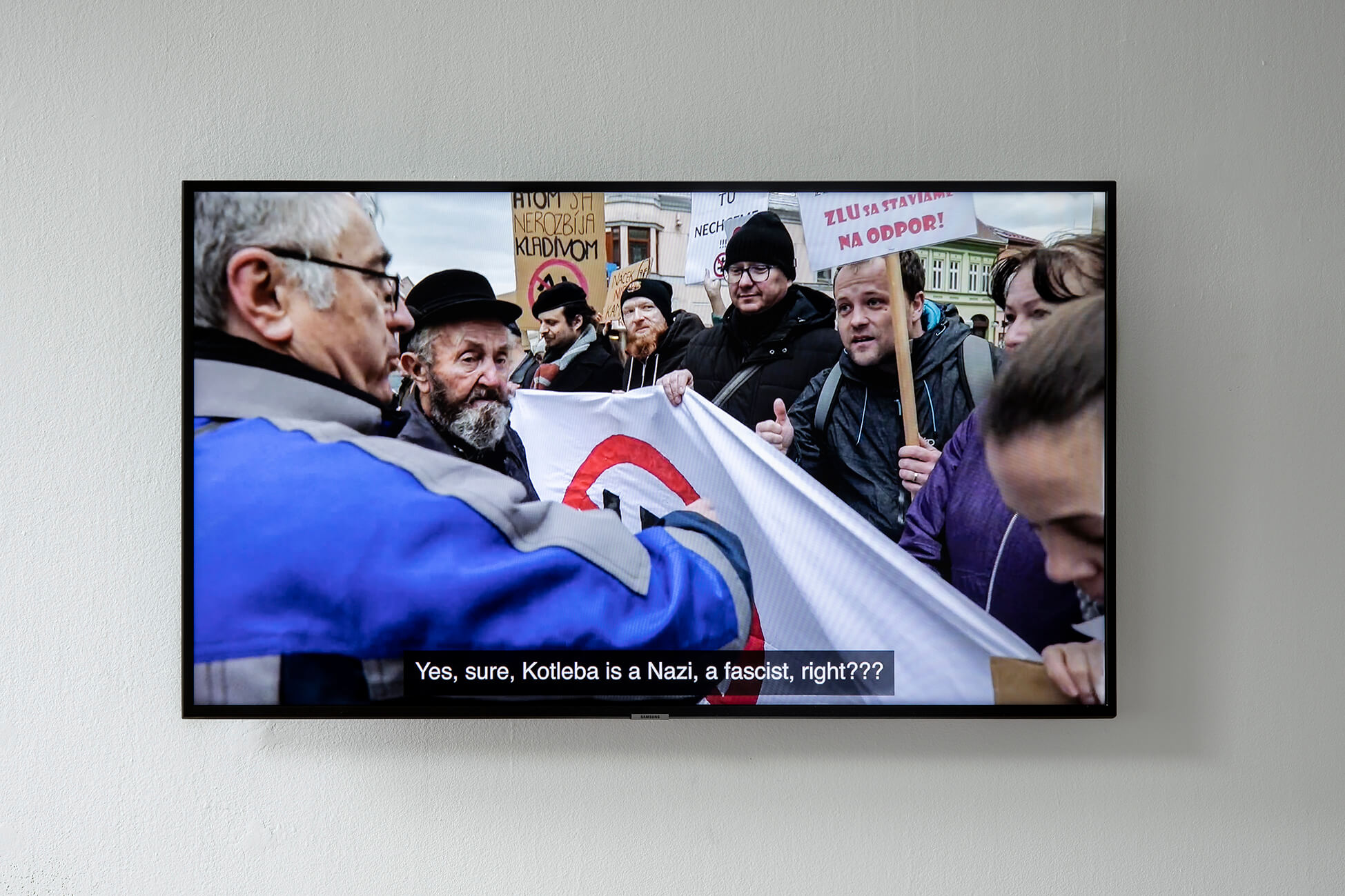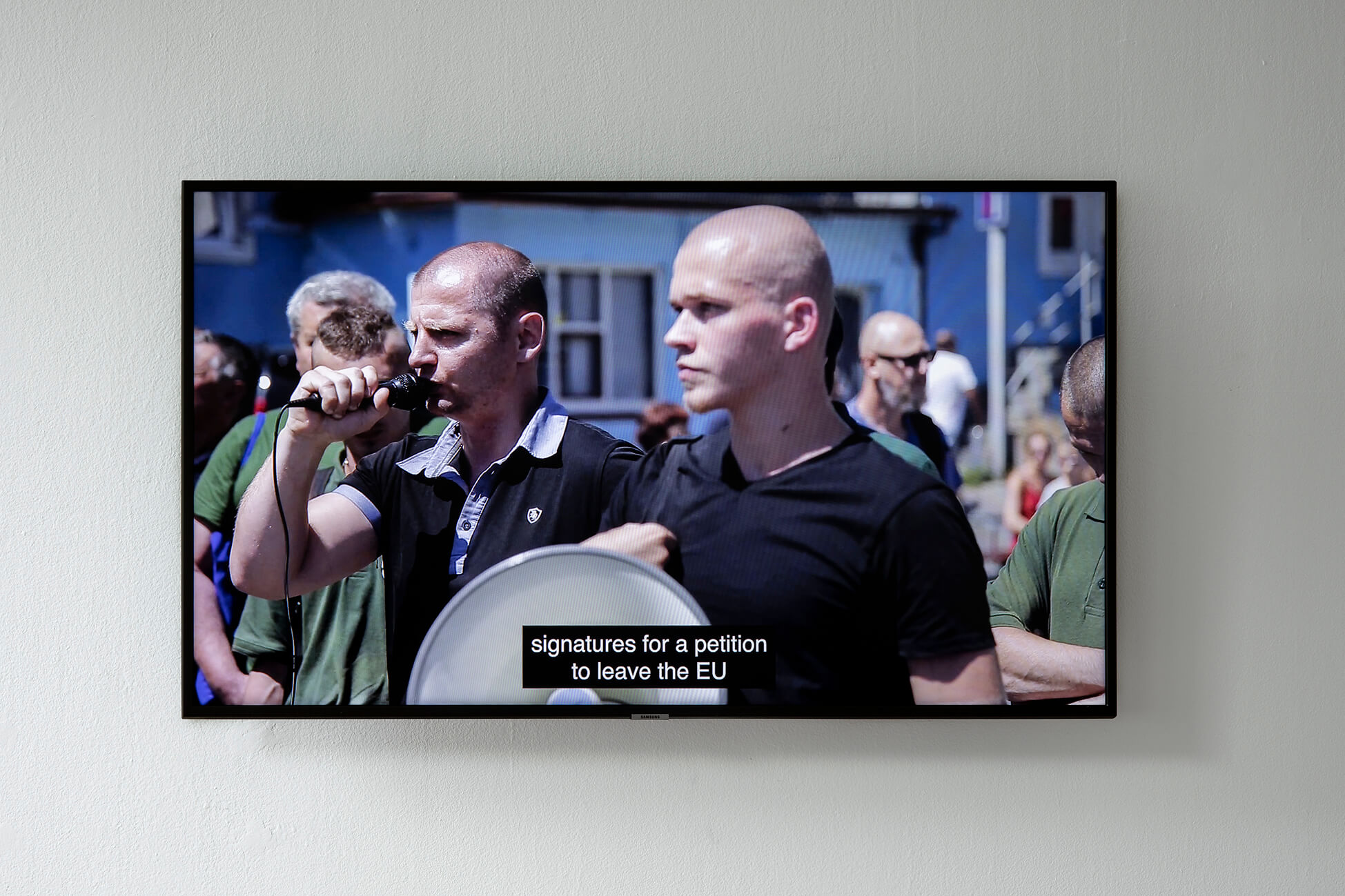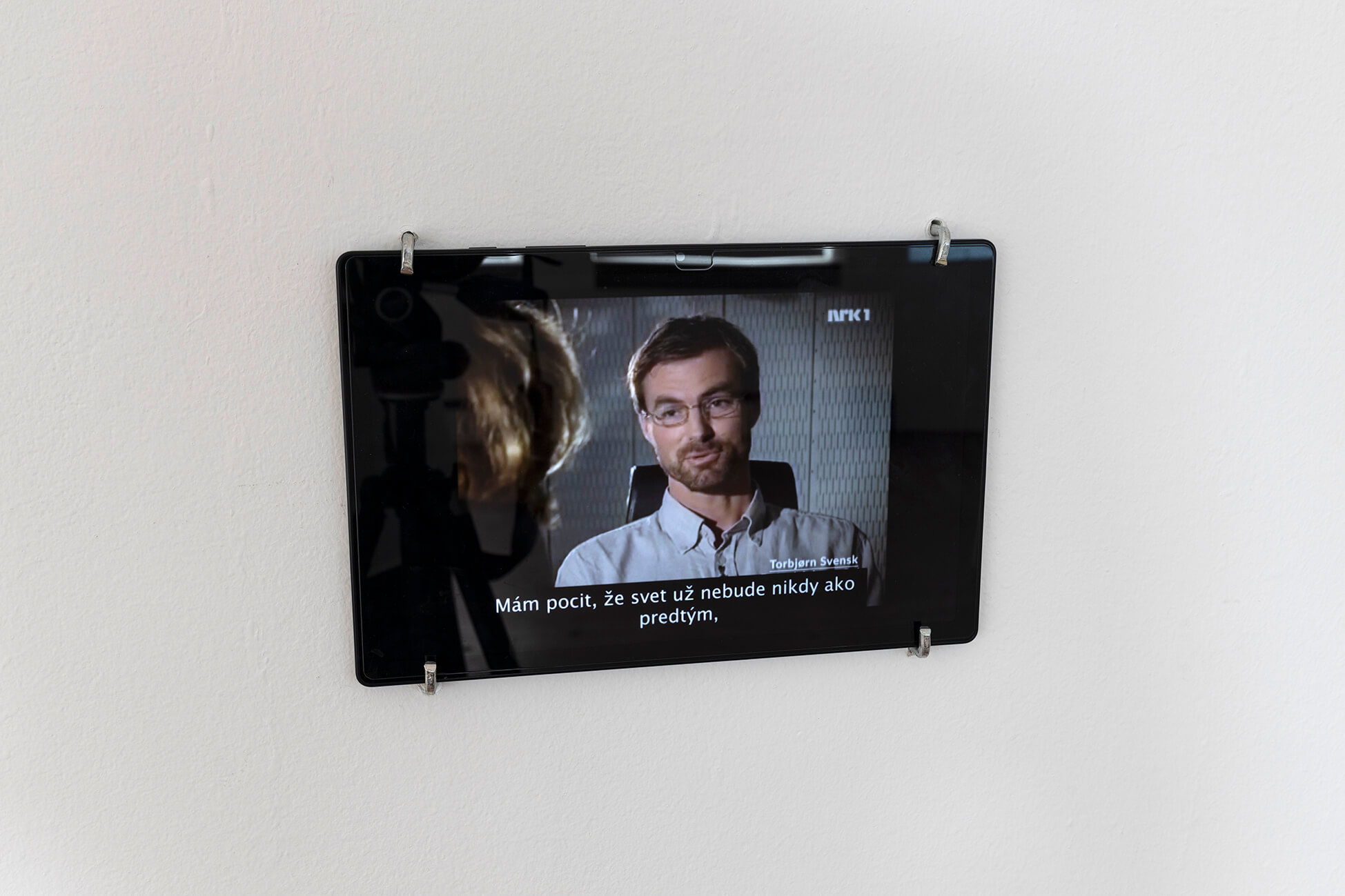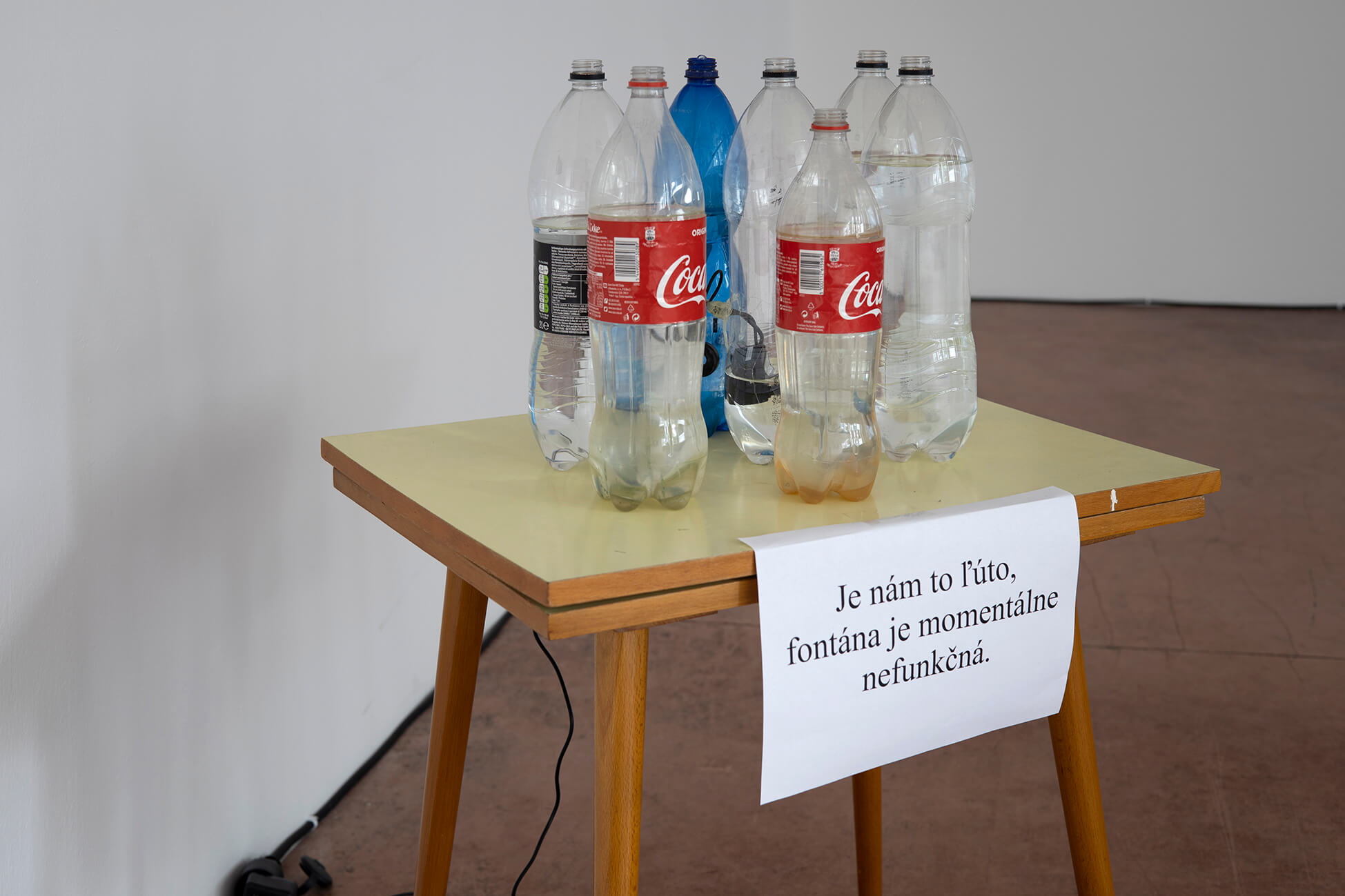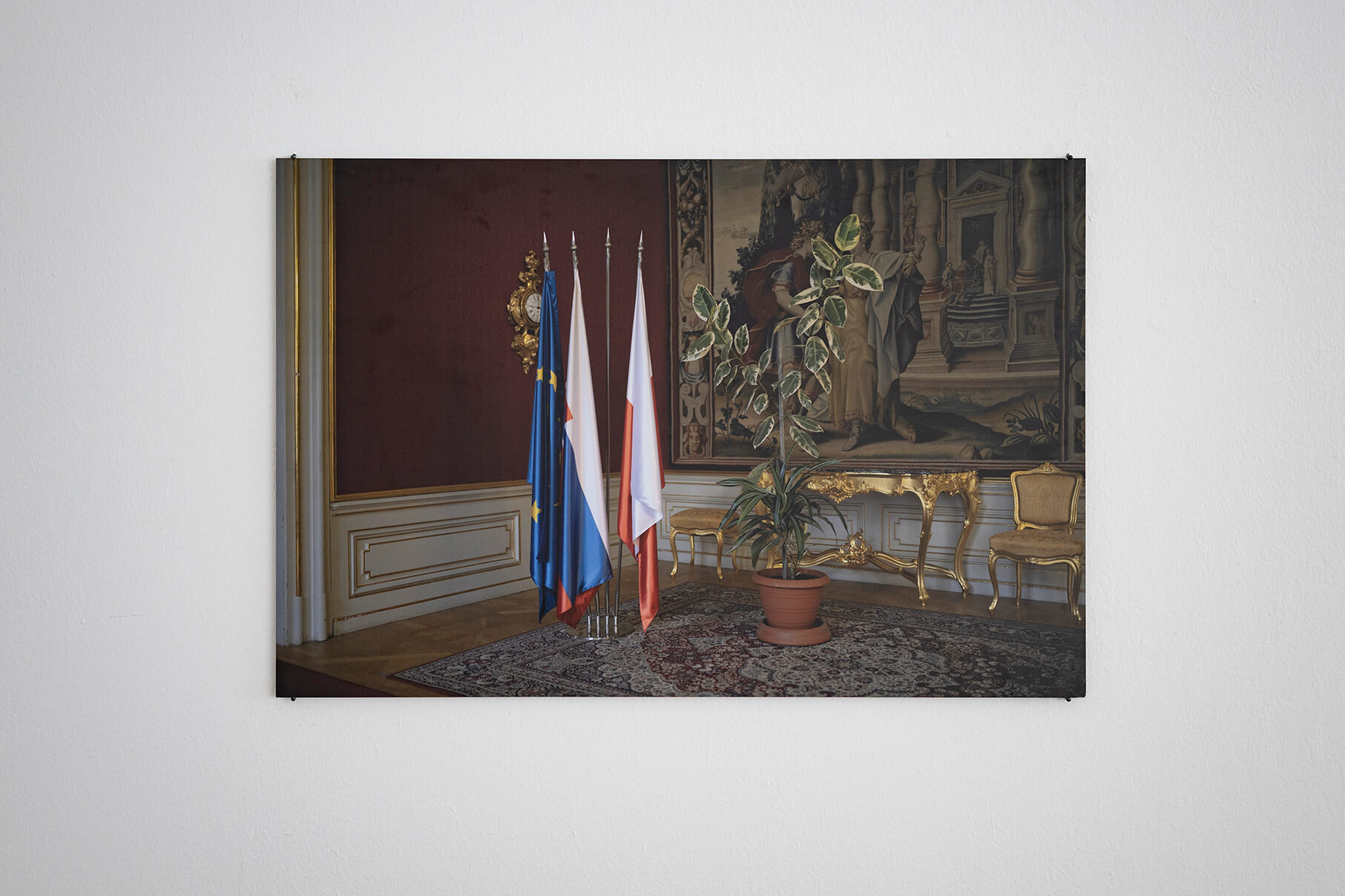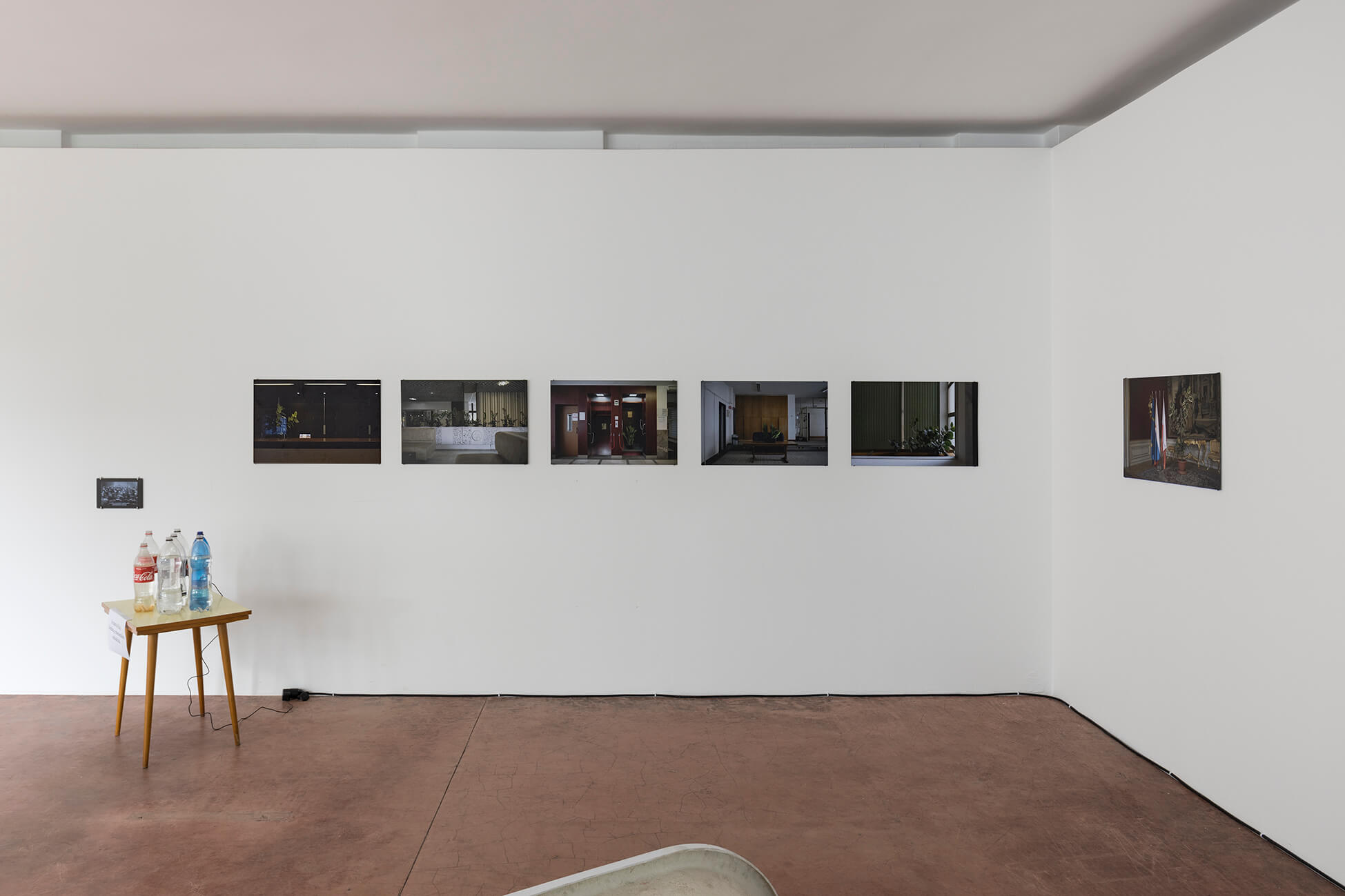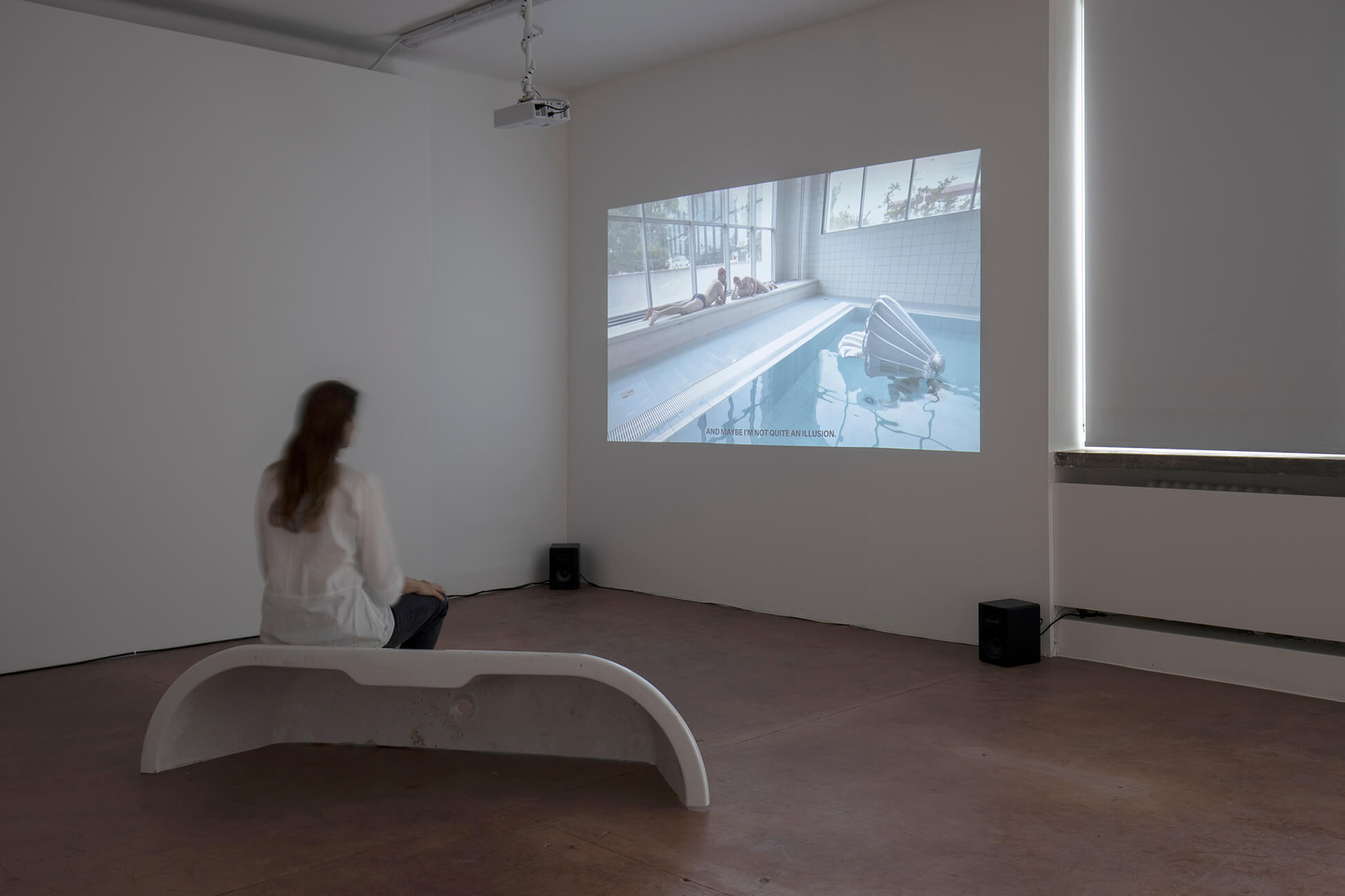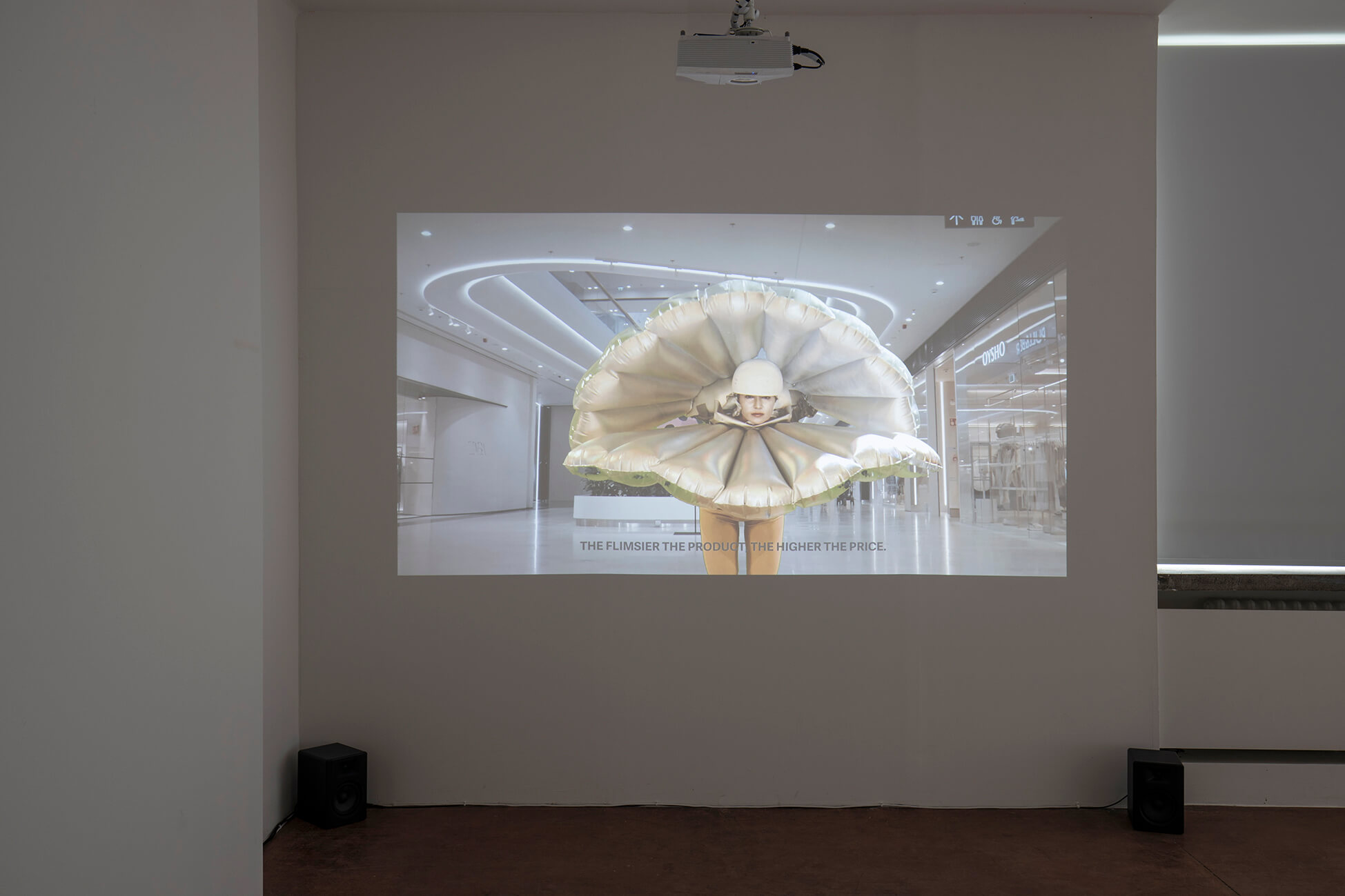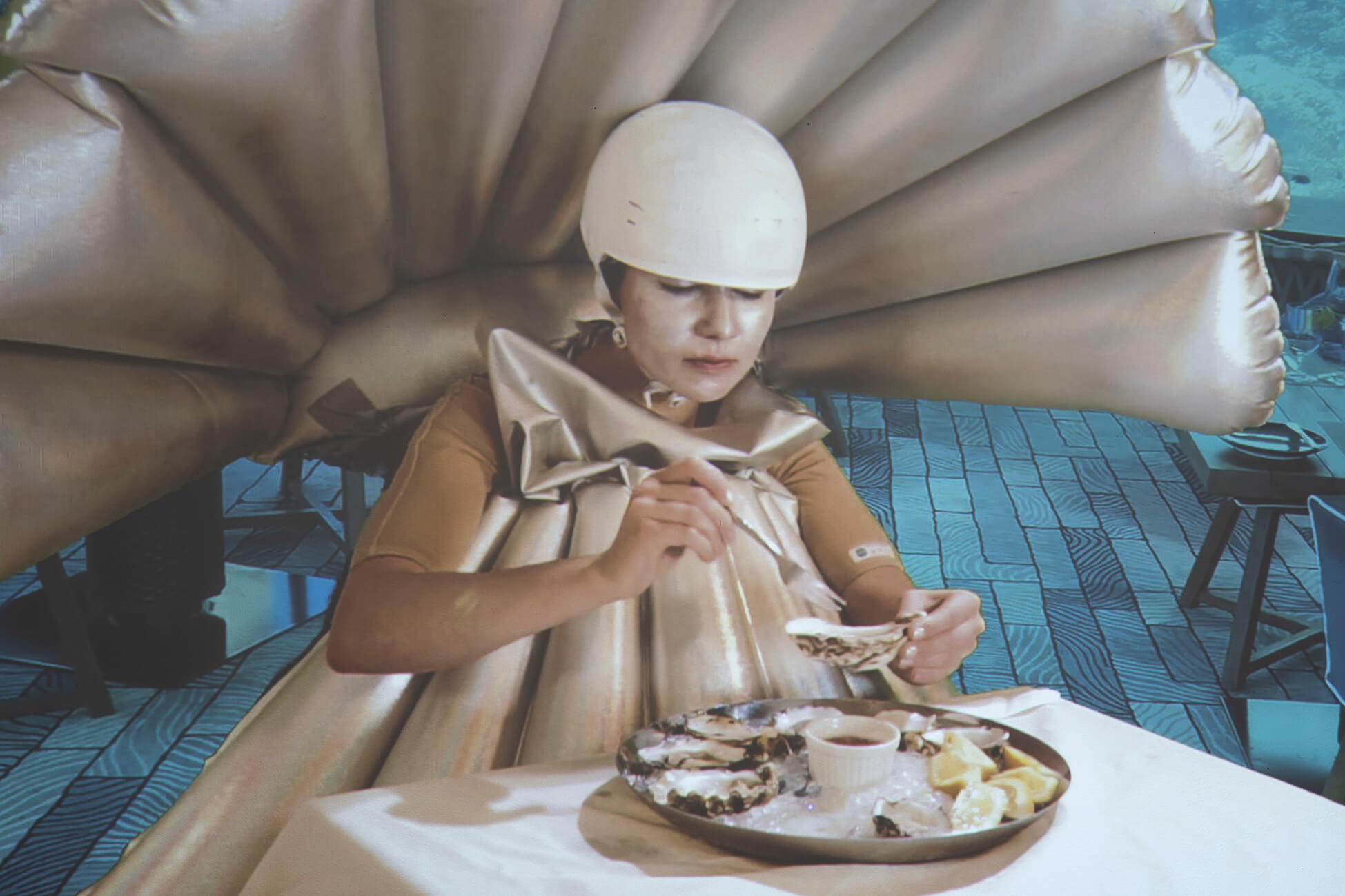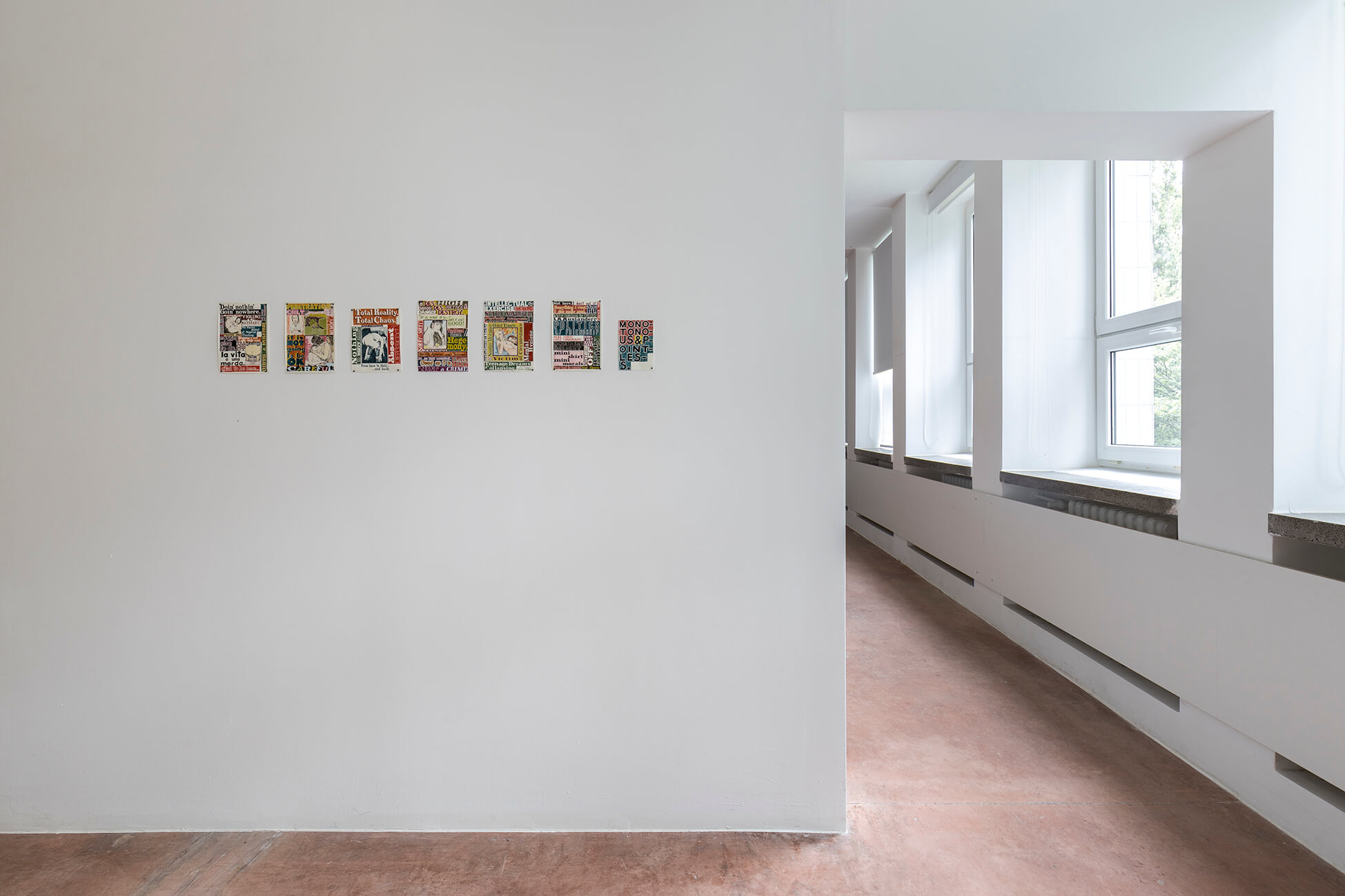E
x
h
i
b
i
t
i
o
n
s
The School of Propaganda: lessons in unlearning
Opening: June 5, 2024, 6-9pm
Location: The Július Koller Society, Račianska 78, Bratislava 831 02
Exhibiting artists: Michaela Kacsiová, Marcel Korec, Tomáš Rafa, Michal Šumichrast
Curated by: Daniel Grúň
Propaganda is not another museum exhibit of the past totalitarian regimes. Propaganda (as a tool, a method or a strategy) certainly did not end with the fall of Nazism and Communism in the 20th century. Quite the contrary, our everyday social reality of today is constructed out of various conflicting forms of propaganda at both micro and macro levels. It influences our decision-making on the basis of both conscious and unconscious interaction.
The exhibition presents four contemporary artists whose work focuses on propaganda as a product of the exercise of political power by authoritarian capitalist regimes. Inspired by “Propaganda Station”, a project by Dutch artist Jonas Staal, the exhibition is a probe into the spectrum of political imagination in the Slovak media space.
Duration of the exhibition: June 5, 2024 – August 30, 2024
Open every Wednesday and Friday, 1-6pm.
The exhibition presents four contemporary artists whose work focuses on propaganda as a result of the exercise of political power by capitalist authoritarian regimes.
Propaganda is not another museum exhibit of the past totalitarian regimes. Propaganda (as a tool, a method or a strategy) certainly did not vanish after the fall of fascist or communist regimes. Quite the contrary, our everyday social reality of today is constructed out of various conflicting forms of propaganda at both micro and macro levels. It influences our decision-making on the basis of both conscious and unconscious interaction.
The shaping of new forms of normative reality was first described by Edward S. Herman and Noam Chomsky in Manufacturing Consent from 1988. In the book, the authors argue that mass media are effective and powerful ideological tools that support the system without the use of overt coercion, through a propagandistic model of communication. In his project Propaganda station, Jonas Staal presents several possibilities for forms of emancipatory (counter)propaganda that make visible the ideological tools of propaganda and lead to an awareness of the direct relations between art and power. The exhibiting artists problematise these practices on three levels: as a control of infrastructure, a control of narratives and a control of the imagination. Through the displayed works, we attempt to open up these questions in the domestic media space.
The project of Tomáš Rafa called postpravda.sk (meaning post-truth) focuses on increasing media literacy and developing critical thinking in order to prevent the spread of misinformation in schools. He is creating an extensive online archive of footage of real-life situations, which are commented on by experts in various fields, using the techniques of documentary filmmaking. Pupils and students have the opportunity to take a critical stance against the misinformed interpretation of various protests, demonstrations and clashes in the public space concerning topical issues such as right-wing extremism, racism, the refugee crisis, women’s rights, LGBTI+ or the climate crisis.
Michaela Kacsiová presents a performative video entitled Peasants With Debts, in which she addresses the hegemony of neoliberal capitalism permeating the most intimate spheres of consumers’ lives. The video stages the artist’s female body as a costumed aquabella, as both an oyster for consumption and a pearlfish. The central image of the film is a swimming pool, through which the artist enters into the unconscious desires of consumers and the mechanisms of their control. The stream of associated images raises questions about what and how conditions our consumer behaviour.
In his photographic and film work accompanied by an object entitled Skutočná pravda o rastlinách (The Truth About Plants), Marcel Korec uses the mystification of the story of plants as the world’s first creators of a bureaucratic system. In doing so, he responds to the trend of creating hoaxes and fake news that manipulatively pass off conjecture and fabrication as fact using seemingly logical reasoning. Korec gives voice to the experts who have succeeded in uncovering the conspiracy of plants against man and are stealthily infiltrating the administrative apparatuses of public administration.
In his (para)graphic work, Michal Šumichrast delves into the underbelly of subcultures to let stereotypical pornographic expressions of sexual pleasure seep into the working relationships of corporate business. Šumichrast combines cryptic textual statements, commodities and advertisements with images of BDSM sexual practices that involve the use of dominance and submission, sadism or masochism.
Daniel Grúň
The exhibition is part of the international project Islands of Kinship: A Collective Manual for Sustainable and Inclusive Art Institutions, co-financed by the European Union. Supported using public funding by Slovak Arts Council.
